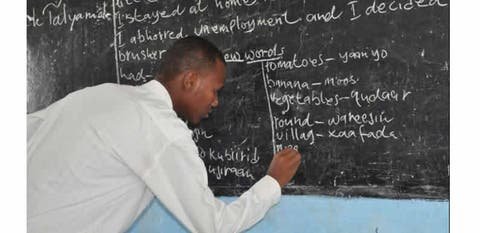Nigeria’s Education Crisis: The Need for More Teachers and Classrooms

Source: Franktalknow
The Universal Basic Education Commission (UBEC) has revealed a critical shortfall in Nigeria’s education sector, necessitating immediate intervention. During a recent one-day partnership meeting in Ikeja, Lagos, UBEC’s Executive Secretary, Dr. Hamid Bobboyi, disclosed the staggering need for 194,876 additional qualified teachers and 1,107,854 new classrooms across the nation’s basic education level.
This revelation highlights the pressing need for child safeguarding and protection principles to ensure a safe and conducive learning environment for every child in Nigeria.
Senses: Child Safeguarding and Protection Principles
- Adequate Teacher Supply:
- Address the shortage of 194,876 qualified teachers to provide quality education and safeguard children’s right to learning.
- Safe Learning Environments:
- Improve the physical condition of 40% of classrooms that are currently in poor condition to ensure safe and healthy learning spaces.
- Equitable Distribution of Resources:
- Ensure a balanced deployment of teachers across urban and rural areas to provide equal educational opportunities for all children.
- Basic Amenities:
- Provide essential furniture and sanitation facilities to create a conducive learning environment and promote students’ well-being.
Stones: Lessons for Parents, Government, and Society
- Government Accountability:
- State governments must prioritize teacher training and use allocated funds effectively to enhance the skills of educators.
- Infrastructure Investment:
- Immediate investment in building and refurbishing classrooms to address the significant infrastructure deficit and provide a conducive learning environment.
- Active Parental Involvement:
- Parents should engage with school authorities and government bodies to advocate for better educational standards and hold authorities accountable.
- Community Support:
- Society should recognize the importance of investing in education as a means to secure a better future for the younger generation and support initiatives that aim to improve the education sector.
Recommendations
To address these challenges, the following recommendations are essential:
- Enhance Teacher Training:
- State governments must utilize the allocated funds for professional development effectively. Investing in training programs will equip teachers with the necessary skills and knowledge to provide quality education.
- Improve School Infrastructure:
- Immediate action is required to refurbish and build new classrooms, ensuring they are equipped with adequate furniture and sanitation facilities. This will create a conducive learning environment for students.
- Equitable Resource Distribution:
- Resources, including teachers and infrastructure, should be evenly distributed across urban and rural areas to bridge the existing disparities and ensure all students have equal access to quality education.
- Community Engagement:
- Parents and communities should actively participate in school governance, advocating for better educational standards and holding authorities accountable for their actions.
Conclusion
By prioritizing child safeguarding and protection, enhancing teacher training, improving school facilities, and engaging parents and communities, Nigeria can address these challenges and pave the way for a brighter future for its children. The time to act is now, and it is the collective responsibility of all stakeholders to build a robust and equitable education system.
Read more about this here: https://childreninfobank.com/safebank/nigeria-needs-194876-additional-teachers-1107854-classrooms-ubec-boss-2/
Source of image: Franktalknow





